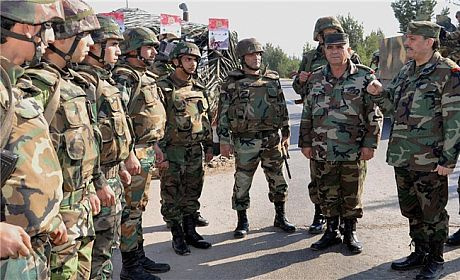Complex Syrian Crisis Needs Wise Solution

The disaster everyone was worried about finally occurred in Syria; at least 1300 people, the majority of whom were civilian children, women, and men, were killed by chemical attacks.
No party in Syria has yet claimed responsibility for this criminal act, but nevertheless one of the disputing parties is behind this inhumane massacre; a massacre which has killed many more people during the past two years. The difference is that the usage of chemical weapons by itself has once again attracted the public opinion of the world towards this crisis which is gradually drowning the entire Middle East. This crisis is now entangled in a thousand knots; in the beginning, the unrests in Syria were the continuation of conditions in Tunisia, Egypt, Libya, and Yemen and if the Syrian officials had responded correctly to the demands of the protesting people, perhaps such developments would not have happened. But the trend of events led to the situation today where the crisis in this country has a thousand layers, not only for the political system of this country but also for the whole region and the world.
Since long ago, out-of-control forces have been active in the civil war in Syria and, by taking advantage of the chaos, they pull other players after them. Following the chemical attacks, the world powers and the United Nations talk about passing the red line, but they still do not have a clear assessment of the consequences of a military attack, even if it would be limited. Military intervention can rapidly push the region into a new phase of unrest, the winners of which will be the same uncontrollable forces. For the world powers, the government of Bashar Assad is only part of the problem, but the bigger problem is the possibility of the instability spreading beyond the borders of the Middle East. Observers warn that military adventurism is not the solution and, considering today’s situation in Egypt, Libya, Iraq, Afghanistan, Pakistan, Tunisia, and even Lebanon, this measure would only deepen the crisis. The involvement of all parties in the Syrian crisis is a global responsibility where they need to participate not as part of the problem but as a partner to find a solution. Military intervention is the solution of war after war and nothing more and, in case of success, it would only change the position of the disputing parties and that is never a solution.
The disintegration of Syria is the first consequence of such a measure and will be the same situation which threatens the territorial integrity of the unstable countries of the region. The involvement of the international community in the Syrian crisis and the punishment of those who were responsible for the recent crimes must be multilateral; the ruling political system, the opposition forces, and, most important of all, the governments which give their financial and military support to the civil war and the out-of-control forces in Syria.
What is clear is that today the Middle East is leaving behind the past order and entering a new situation; a situation which is unfortunately mixed with bloody events. This change seems inevitable but its form and its costs are vital for both the people of the region and the entire world. The international community cannot immune itself from the consequences of the recent violence. The people of the Middle East must also be aware that the doctrine of the new order based on the present disorder has threatened their countries with the danger of collapse and disintegration on the basis of rival ethnicities and religions and in accordance with the desire of the foreigners.
The situation in Syria is terrible and gives a warning, showing an image which can engage the whole region because of the new military adventurism.

